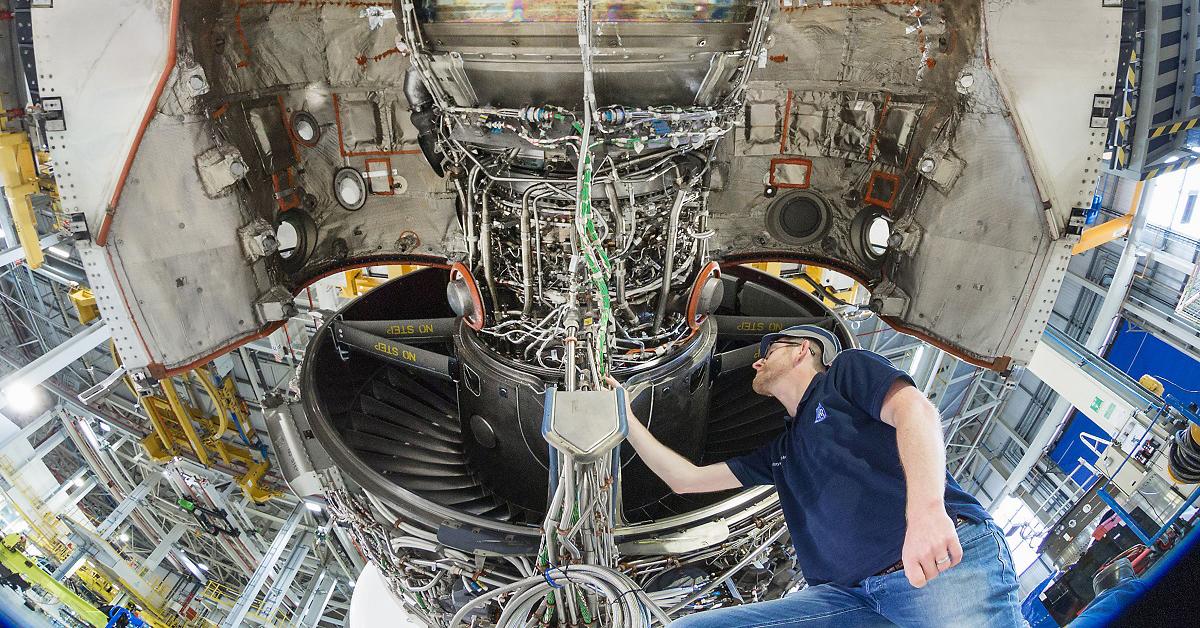Pioneering Technology To Unlock The Full Potential Of Sustainable Aviation Fuel

Companies across the aviation sector are working towards ambitious carbon emission reduction targets.1
The sector is vital for international travel and trade but, to ensure it has a future in line with international climate goals, it must decarbonise.
And today, there is currently no technological alternative to conventional kerosene other than sustainable aviation fuel (SAF).
"There is no silver bullet to decarbonise aviation. We will need a range of measures to advance the sustainability of air travel," says Anna Mascolo, President, Global Aviation at Shell.
'Drop-in' solutions such as SAF and offsetting emissions are the only viable options available today for reducing the industry's carbon output at scale. Their accelerated use will play a critical role while the sector also looks ahead to the potential of emerging technologies, such as electric or hydrogen aircraft.
But while new fuels, offsets and future innovations take centre stage, the role that existing technologies can play in decarbonising aviation is often overlooked.
"Technology is a critical element of all net-zero emission models, unlocking further potential for SAF to reduce emissions while also delivering engine efficiencies to reduce fuel consumption," says Mascolo.
Collaborating across the value chain
In a pre-Covid paper2, the International Civil Aviation Organization (ICAO) noted that CO2 emissions from international air travel could be reduced by as much as 63% by 2050 if conventional aviation fuel is replaced entirely by SAF. In short: SAF could be the most significant contribution to aviation's carbon neutral growth.
Despite the positive steps taken, SAF currently represents less than 1% of total jet fuel volume.3 To increase supply, industry needs to collaborate to rapidly scale up production and governments must encourage demand through policy mandates, both of which will help unlock learning curve effects and economies of scale which could help lower costs.
While industry and policymakers are taking steps to increase SAF supply and use, Mascolo says there is an opportunity "for organisations at every stage of the value chain to use technology to maximise emissions reductions from SAF."
This means that all parties involved—from SAF producers and suppliers to engine and aircraft manufacturers—need to work together closely.
Shell Aviation is building on existing relationships it has with companies such as engine manufacturer Rolls-Royce to unlock SAF's full potential.
Since aviation's inception, Rolls-Royce and Shell have come together to overcome obstacles and enable progress. The first flight across the Atlantic in 1919 and Concorde's first commercial flight from London to Bahrain were both powered by Rolls-Royce engines and fuelled by Shell, with AeroShell providing Concorde's engines with high temperature protection.
Testing SAF in next-generation engines
Today, Shell is supporting Rolls-Royce's ground testing of 100% SAF in engine technology, first announced in November 2020.4
This is the first time the engine manufacturer has used 100% SAF in engine ground tests, using a Trent model that incorporates Rolls-Royce's Advanced Low Emissions Combustion System (ALECSys) lean-burn technology, as well as their latest business aviation engine in development, the Pearl 700.
The tests aim to confirm that unblended SAF makes a substantial contribution to improving the environmental performance of gas turbine engines. The results could be significant for informing how SAF could be used by the industry in commercial operations in future.
"The use of SAF is vital to ensuring the aviation industry can be sustainable, and is one of the key pillars of our decarbonisation strategy," Paul Stein, Chief Technology Officer at Rolls-Royce, says.
The flightpath to 100% SAF
Currently, SAF is ASTM-certified for blends of up to 50% conventional fuel, but these tests intend to show that aircraft engines can operate on 100% SAF as a 'drop-in' solution.
This could lay the groundwork for moving such fuels towards certification of higher blend limits, removing barriers to entry by increasing the flexibility of introducing sustainable fuels within existing supply chains.
Stein adds that testing will provide further proof that Rolls-Royce engines can operate on 100% SAF, "providing improved environmental performance that would add value to the aviation industry if made certifiable."
Low-carbon fuel specialist World Energy produced the unblended SAF, which was supplied by Shell Aviation and SkyNRG. This unblended fuel has the potential to significantly reduce net CO2 lifecycle emissions by more than 75 per cent compared to conventional jet fuel, with the possibility of further reductions in years to come.5
Shell Aviation is additionally providing AeroShell lubricants for the ALECSys engine test programme. To ensure carbon neutrality, it will provide high-quality carbon credits to compensate for incremental emissions that result from the adoption of SAF and the lifecycle of the lubricants.
"These tests highlight the important role of collaboration across the industry and the need to use a combination of multiple measures if aviation is to achieve net zero emissions," adds Mascolo.
A holistic approach
While SAF and carbon offsets will likely continue to dominate discussion surrounding aviation's decarbonisation efforts, many are taking a multi-faceted approach to reducing emissions, with technology playing a central role.
Mascolo comments that "aviation's net zero ambitions will not be delivered by one technology or company alone. It needs all parties to collaborate across the value chain – taking a holistic approach that tackles emissions produced both in the air and on the ground."
With one of the most extensive refuelling networks in the world, which involves the supply of fuel, lubricants, digital, technical and sustainable solutions in many countries, Anna Mascolo believes that Shell Aviation is well placed to support companies that are looking to reduce their emissions. "We're ready and eager to work with parties across our industry towards net-zero carbon emissions."
1https://www.iata.org/en/programs/environment/climate-change/
2https://www.icao.int/environmental-protection/Documents/EnvironmentalReports/2019/ENVReport2019_pg17-23.pdf
3https://www.iata.org/contentassets/d13875e9ed784f75bac90f000760e998/saf-fact-sheet-2019.pdf
4https://www.rolls-royce.com/media/press-releases/2020/12-11-2020-rr-to-test-100-percent-sustainable-aviation-fuel-in-next-generation-engine-demonstrator.aspx
5World Energy RSB Audit, October 2020




